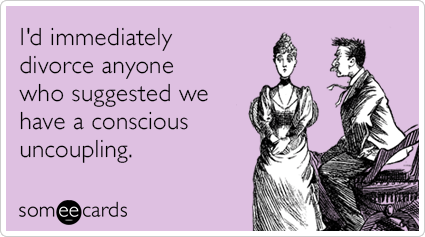
Online dating is no different to any other way of searching for a new partner in that you will need to consider, whether consciously or not, what precisely it is that you are looking for. If you have emerged from a long term relationship at a later stage in life, what you were looking for when you were last single is likely to be quite different now.
If you were sizing up a new person you had met in a bar, or who had been introduced by a mutual friend, you would be considering the attributes you are looking for – the ‘nice to haves’ and which characteristics are non-negotiable – the ‘dealbreakers’. This is equally applicable to online dating however it is something that is much more upfront and will impact both your search criteria and how you respond to those that express interest in you online. You also need to consider the nice to haves vs dealbreakers in the way you put together your own profile.
The nature of online dating with its questions and criteria, provides this information in a very accessible format and encourages thinking about these attributes before you even respond to, or pursue a person. This can however, tend to make the process a very scientific one rather than considering the true dynamics of a real relationship. It also makes us feel like we have the luxury of excluding people very quickly and searching for the most accurate match. It tends to encourages our ‘nice to haves’ to be confused with ‘dealbreakers’ and we become unnecessarily exclusionary.
What is a nice to have? Bear in mind that you are not looking for someone that is a carbon copy of you. They do not need to share ALL of your interests: many of the most successful relationships are based on some shared attributes and interests and some that are not, allowing each person space where they can focus on the pursuits most important to them. For example – a partnership of a golf enthusiast and a long distance runner allows for a long window each week where 18 holes of golf and a long training run can co-exist perfectly. A high degree of common interests and apparent compatibility is also not a guarantee of success in a long term relationship.
The way the online dating tools facilitate profiling on individuals will tend to encourage you to think of the long list of attributes that you are looking for in a real partner. Try to suspend judgement on this and read through profiles with a sense of whether the person would be compatible with you rather than applying a mental checklist. Consider whether something you read in a profile and appears off-putting is really an issue or just a difference, and whether it will actually matter in the context of a relationship. If someone has music interests that are completely the opposite of yours, it may matter if you are a concert-going, music festival enthusiast but likely not if the only time you will be subjected to their taste is the occasional i-pod-supported road trip.
Then work on distilling what really are your non-negotiables or dealbreakers. Consider the following questions:
- Is this attribute something that will loom daily in the relationship and present constant strain
- Is it something that I am fundamentally opposed to
- Will this put my health or wellbeing at risk
Can the situation change? Clearly it is folly to try to change a person after you enter a relationship, but declining a smoker who is desperate to quit and could do with your support vs someone who has declared themselves a lifetime smoker could mean you rule out someone else who is compatible with you in every other way. Resolving a situation where one is yearning to have a child and the partner is opposed is far more complex, and hoping someone will change their mind about this is more perilous.
True dealbreakers are often things like religion, smoking, alcohol use, child-status and long distance relationships. Try to avoid excluding based on nice to have’s eg food preferences, music preferences, particular suburbs. Think carefully about preconceived ideas you have about topics such as height, weight, occupation and age.
Tips:
- Do a brain dump on paper of all the things you think are important in a partner
- Closely look at each and create a short list of your true deal breakers.
- Ask yourself the ‘are they a deal breaker’ questions above and consider if the situation could change.
- Actually articulate out loud ‘xx is a dealbreaker BECAUSE and get to the heart of why. Test the logic of it with a friend.
It is then simple to apply these when considering a request for contact from someone and reviewing their profile, as well as searching yourself. You also need to ensure that you have it clear in your own profile. Don’t be equivocal if it is truly non negotiable – for example don’t be ‘undecided’ about more children if you are truly opposed to having another child. Its not something you can be opposed on and then hope you can sort it out later.
Getting to the heart of this is key in evaluating a new partner, online or through any other means.


















































